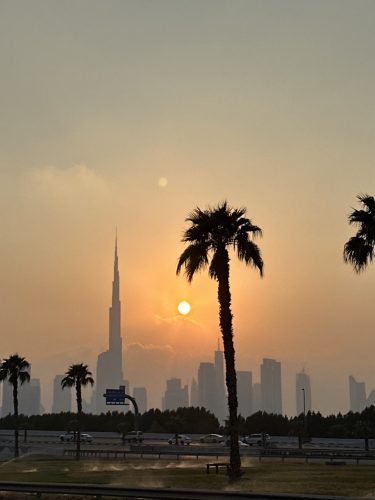Life in Dubai in 2024 offers a unique blend of modernity and tradition, with luxurious amenities juxtaposed against cultural richness. The city boasts state-of-the-art infrastructure, world-class entertainment, and a vibrant multicultural community. Residents enjoy a high standard of living amidst a dynamic urban landscape.
And if you are considering moving to Dubai, know that it is our job to assist you with your real estate inquiries ! We make our expertise available to you, so feel free to call us at +971 56 243 2911
What are the living conditions of Dubai?
Living conditions in Dubai encompass various factors such as housing, healthcare, education, and overall quality of life. In Dubai, residents benefit from modern housing developments, efficient transportation networks, and a plethora of leisure activities. The city’s cosmopolitan atmosphere fosters diversity and tolerance, making it an attractive destination for expatriates seeking new opportunities and experiences.
Is Dubai an expensive city?
Yes, Dubai is known for its high cost of living, attributed to factors such as housing, transportation, and leisure activities. However, the city also offers a range of options catering to different budgets, ensuring that residents can find suitable accommodations and amenities to fit their lifestyle.
What is the average rent in Dubai?
According to Property Finder, the average monthly rent for a single person is 2500-4170 AED (625-1040€) and 5900-12000 AED (1475-3000€) for a family of four. But of course, the average rent in Dubai varies depending on the location and type of accommodation.
What is the architecture style of Dubai like?
Dubai’s architecture is renowned for its boldness, innovation, and grandeur. Skyscrapers dominate the skyline, showcasing futuristic designs and cutting-edge engineering. Iconic landmarks such as the Burj Khalifa, the world’s tallest building, and the sail-shaped Burj Al Arab hotel exemplify Dubai’s architectural prowess.
What are the must-see monuments of Dubai?
- Burj Khalifa
- Burj Al Arab
- The Palm Jumeirah
- Atlantis, The Royal
- Museum of the future
- Dubai Frame
- Jumeirah Mosque
How is the economy in Dubai?
The economy in Dubai remains robust in 2024, driven by diversification efforts across sectors such as tourism, trade, finance, and technology. The city continues to attract foreign investment and talent, bolstering its position as a global business hub.
What are tax rates for Dubai residents?
- Personal income tax : 0%
- Value-added tax (VAT) : 5%
- Corporate tax : 9% (taxable income exceeding AED 375,000/year, non-qualifying income of a Qualifying FreeZone Person)
How is the work life in Dubai?
The work-life balance in Dubai varies depending on the industry and individual preferences. Standard working hours typically range from 9 am to 6 pm, with Saturday and Sunday comprising the weekend for most sectors.
What is the minimum wage in Dubai?
While there isn’t a set minimum wage in the UAE, job roles typically come with an average salary range. Consequently, even if a specific occupation lacks a mandated minimum salary, individuals can still aim for the following amounts based on their classification.
What is the average salary in Dubai?
- University graduates: AED 12,000 ($3,267) per month
- Skilled technicians: AED 7,000 ($1,905) per month
- Skilled laborers: AED 5,000 ($1,361) per month for those with a secondary school certificate
What is the retirement age?
The retirement age in Dubai is typically 60 years, although it may vary depending on the employer and industry.
What is the social structure in Dubai?
Emirati society is divided into nationals and foreign immigrants. Nationals include ruling families, merchants, an emerging middle class, and low-income groups. Immigrants range from top professionals to low-paid workers, with nationals generally benefiting from state laws and regulations.
How is the Healthcare system in Dubai?
Dubai boasts a world-class healthcare system, with a network of hospitals, clinics, and medical centers catering to residents’ needs. The city prioritizes healthcare accessibility and quality, with a high doctor-to-population ratio and advanced medical facilities.
How is the school system in Dubai?
The school system in Dubai offers a variety of options, including public, private, and international schools. French schools are also available for families seeking French-language education. The curriculum follows international standards, providing students with diverse learning opportunities.
